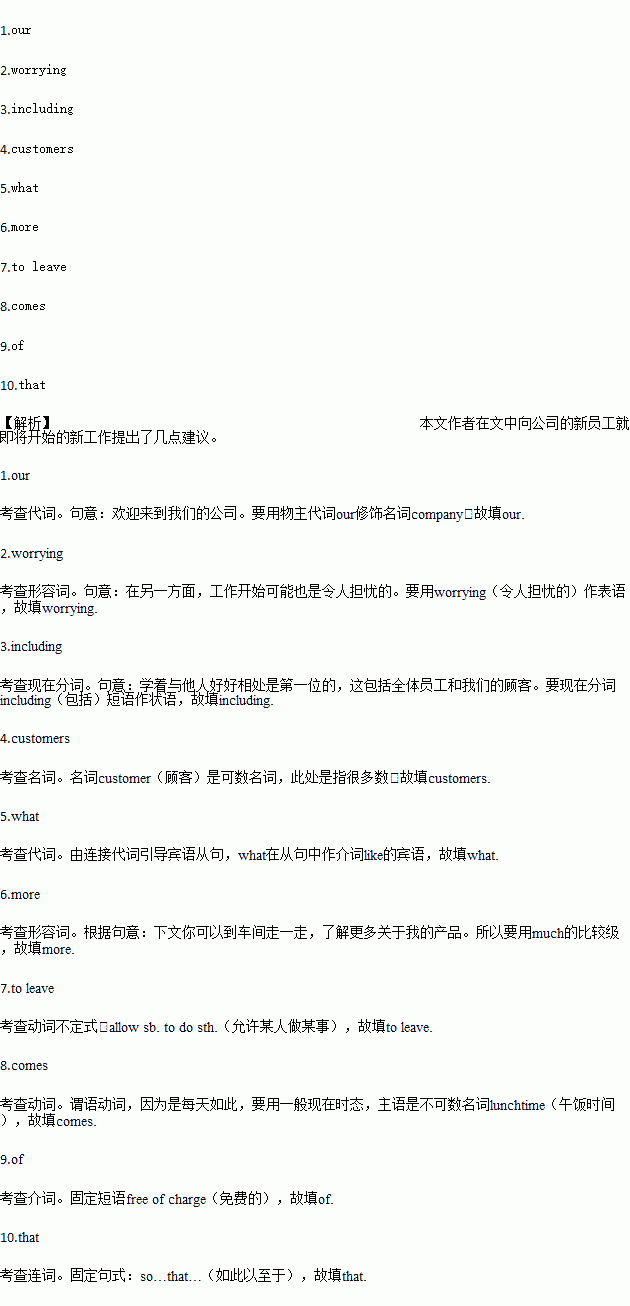题目内容
Everybody, welcome to1.(we)company. I am Luisa, Director of the department. Let me say something to you all. The starting of work can be exciting on the hand, and can also be 2. (worry) on the other. No matter what your future job is, you will have to work with others. Leaning to get on well with others must come first3. (include) all staff in the company and our 4. (custom)
And secondly, right after my introduction, spend some time reading the introduction of our company and get to know the people in your office and find out5.the company is like This afternoon you can walk around our workshops and know6. (much)about the products. No one is allowed7. (leave)the company before 5:30 pm. By the way, lunchtime8. (c ome)at 11:50 and it’s free9.charge.
Remember: Learning is so important 10.it can change your future life.
This is what I’d like to say to you at the moment. If you still have any question, please come to my office. Thank you.


